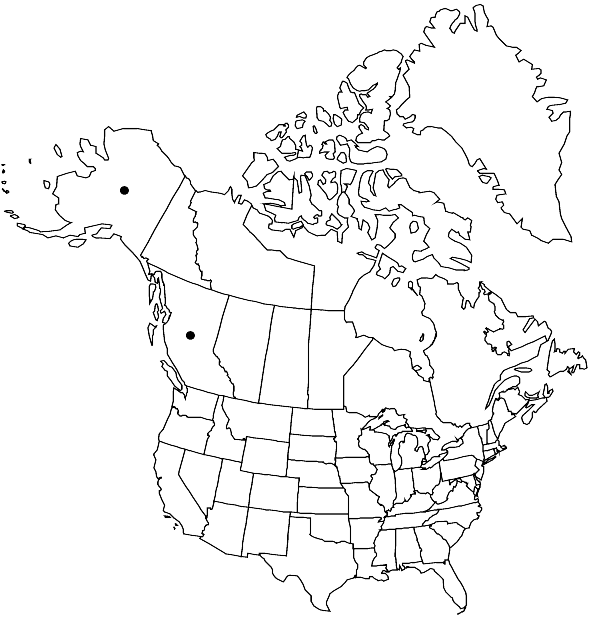Andreaea sinuosa
Bryologist 89: 189, figs. 1–17. 1987,.
Plants reddish-brown to black. Leaves weakly spreading, straight or sometimes secund, narrowly lanceolate, widest proximally, apex symmetric; costa absent; leaf margins entire; basal laminal cells rectangular, marginal cells not different in shape, walls thickened, pitted, sinuose; medial laminal cells roundedquadrate to ovate, 1-stratose entirely or sometimes 2-stratose in patches distally, lumens rounded; laminal papillae low, large, brown to whitish, mainly medial. Sexual condition apparently dioicous, possibly cladautoicous; perichaetial leaves differentiated, convolute-sheathing. Spores 12–20 µm.
Habitat: Acidic rock in snow beds
Elevation: low to moderate elevations
Distribution

B.C., Alaska, nw Europe
Discussion
Andreaea sinuosa is uncommon, and is distinguished from the similar A. rupestris by the symmetric and often rounded leaf apex and sinuose basal laminal cells.
Selected References
None.
Lower Taxa
"widest" is not a number.